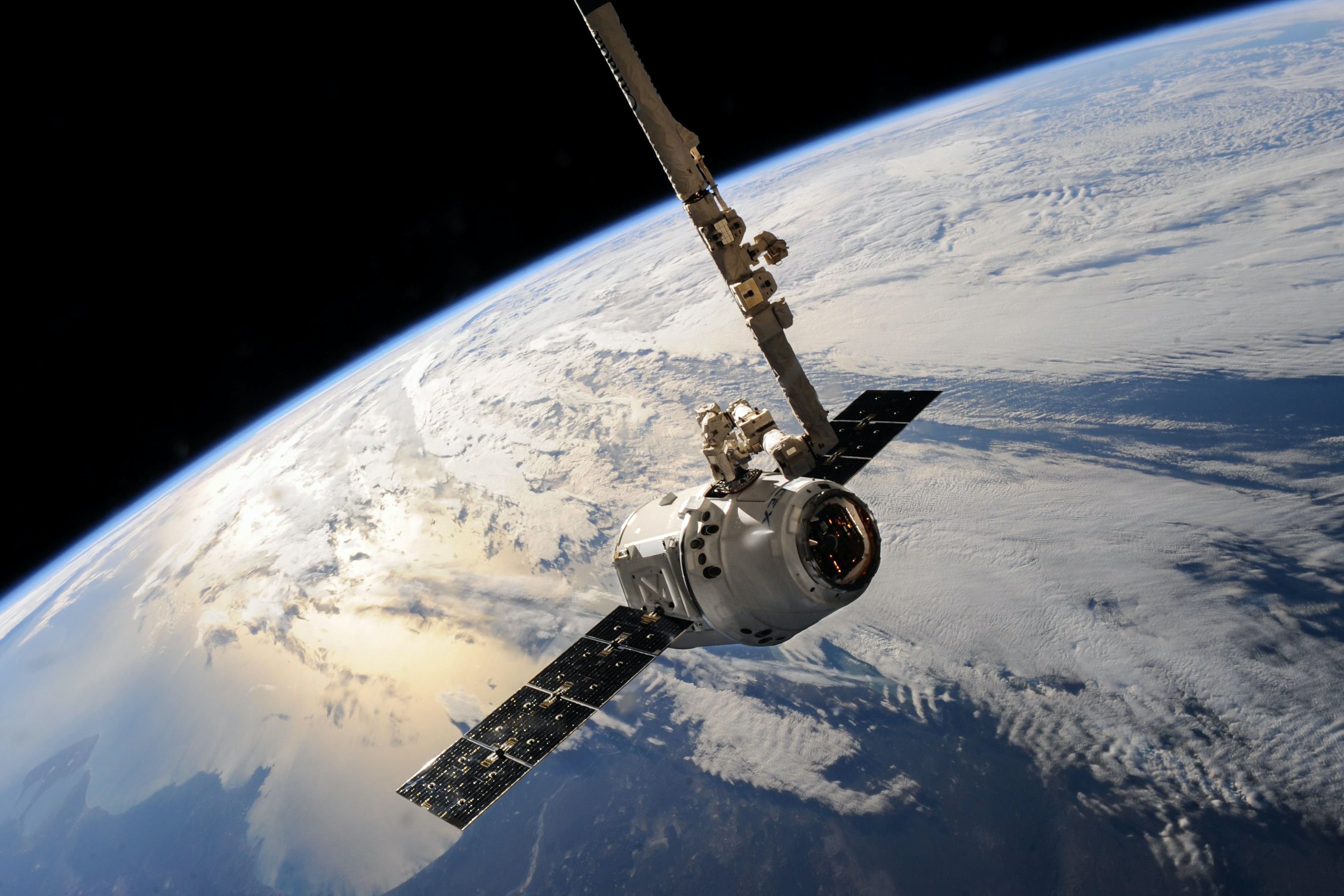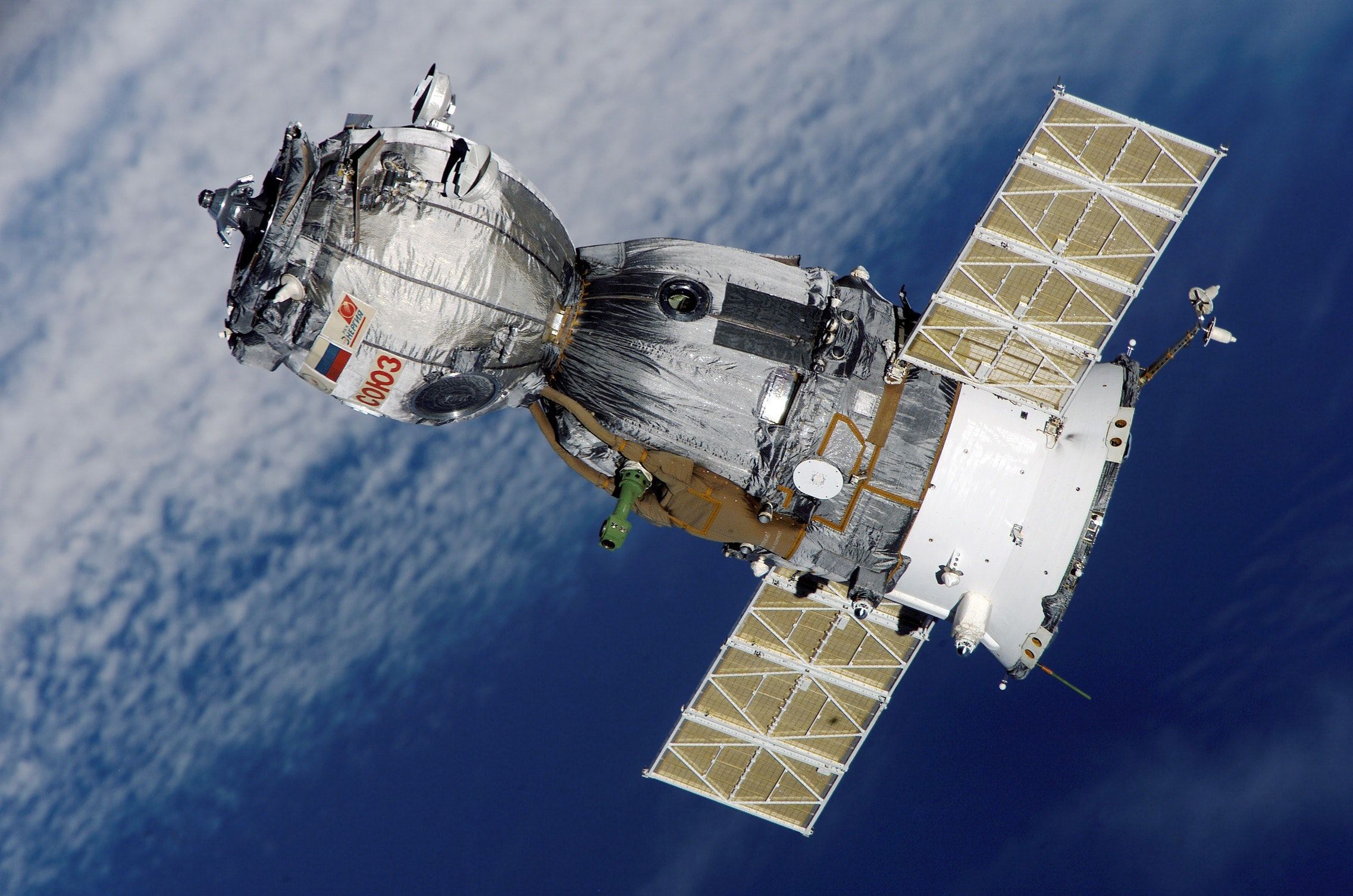In this day in age, everyone knows a little bit about cybersecurity. Whether you’re an employee of a high-end bank or a student just trying to protect your social media log-ins, basic internet security is important. Anything online needs some protective measures to stop hackers from breaking in.
With so many hackable things, cybercriminals get creative with their malicious activities. Hijacking modern Furbies or smart fridges seem a little strange, but nothing feels more like a dystopian sci-fi plot than cyberattacks in space.
Space is full of hardware potentially vulnerable to hackers, but do these attacks really happen and what threat would they pose?
Can Hackers Attack Satellites?
What is a satellite exactly? Technically, it is just what you call any object that orbits around another bigger object. There are both natural and man-made satellites.
Natural satellites refer to things like moons orbiting around other planets or even the earth, given that it orbits the sun. People can’t just “hack” into these types of satellites. Man-made satellites are generally what people picture when they think of the topic.
Though it seems like a work of fiction, hacking these is not only possible; it happens quite a bit. There are thousands of satellites in space, and according to the Union of Concerned Scientists, 3,372 were active as of January 2021. There is also plenty of "space junk," which is another problem entirely.
These satellites are from all over the world and have countless purposes. It’s this hardware that’s responsible for communication, research, and navigation. They help deliver television signals, take pictures for science, allow GPS, and facilitate phone calls.
They help bridge the distance between people around the world by sending signals over large distances. Before this, mountains could block things like TV signals and bodies of water limited long-distance calls. Instead of relying on physical wires or short-range towers, satellites facilitate the transfer of signals all over the world.
The National Aeronautics and Space Administration (NASA) suffers cyberattacks relatively regularly. But they do their part to address them immediately.
Two American satellites used by both NASA and the US Geological Survey faced attacks four times between 2007 and 2008. Luckily, while cybersecurity experts detected and recorded interference, in the end, the attacks were unsuccessful. They were disrupted but failed to capture any information or even deliver any commands.
These satellites helped monitor climate and geography; however, in the wrong hands, they could offer sensitive information.
Why Would Someone Hack a Satellite?
There are many reasons why someone may hack a satellite. Satellites offer a lot of resources that range in terms of what they offer. Imagine the kind of sensitive information you could get your hands on when you control things like GPS.
If we want to get even more extreme, think about how these hackers could turn satellites into weapons or take control of dangerous tools.
Even if you don’t turn the hardware itself into a weapon, control alone is valuable. Imagine the type of ransom one could receive for holding them hostage. Shutting down satellites or threatening to reposition them causes a lot of problems.
Not everything is malicious, though: there are even contests encouraging people to hack satellites.
Don’t let the laidback interface of the Hack-A-Sat event site fool you. This legit event invites computer nerds from all over the world to try to hack satellites in order to raise awareness of cybersecurity issues and find weaknesses to fix.
It’s an ethical hacking event where people win up to $50,000 by participating in challenges. In addition to the prize money, you also get the opportunity to make a name for yourself.
Many institutions use these events to scout out potential employees, especially government agencies like the US Air Force.
What Prevention Measures Protect Space?
Most institutions know enough about cybersecurity to install some protective measures. As of now, these are widely up to the discretion of the launcher. There is a lack of regulations, although there are many recommendations as having an insecure server is costly to the launcher if they want to maintain control over their services.
NASA currently has a huge cybersecurity team that constantly monitors, addresses, and takes measures to prevent cyberattacks. These precautions exist in addition to preventative software and techniques like encryption and authentication.
Are Cyberattacks in Space a Big Deal?
There are so many basic societal functions that heavily rely on activities in space. The potential for disaster is a huge deal. Still, people highly underestimate the threat of these attacks which could devastate nations.
Many participants of the Hack-A-Stat say that so many institutes launch insecure satellites due to the lack of policies. If people want to launch their own satellites, there are very few regulations needed, and sending up liabilities isn’t against any rules.
As society becomes more dependent on space activities, it becomes increasingly important for nations to recognize both the potential of space and the dangers of not taking security problems seriously.
Just look at some of the current space projects. SpaceX’s Starlink aims to have tens of thousands of satellites in the air, significantly multiplying the number of active orbiting hardware we have.
Currently, there is a movement pushing nations to unite and come up with a set of regulations to help keep space (and us) safe. While satellites functioned thus far without any devastating issues, try to imagine what would happen to society if satellites suddenly stopped working.
People should take these threats seriously.
Is Space Under Attack?
While cyberattacks in space are a real problem, you don’t need to worry about some sci-fi level meltdown taking place. However, people working with orbiting hardware should know about the potential dangers lurking in the stars. Just because something is in space does not mean that it is safe from hackers.
Anyone sending things up into orbit should take the time to implement sufficient security measures.




